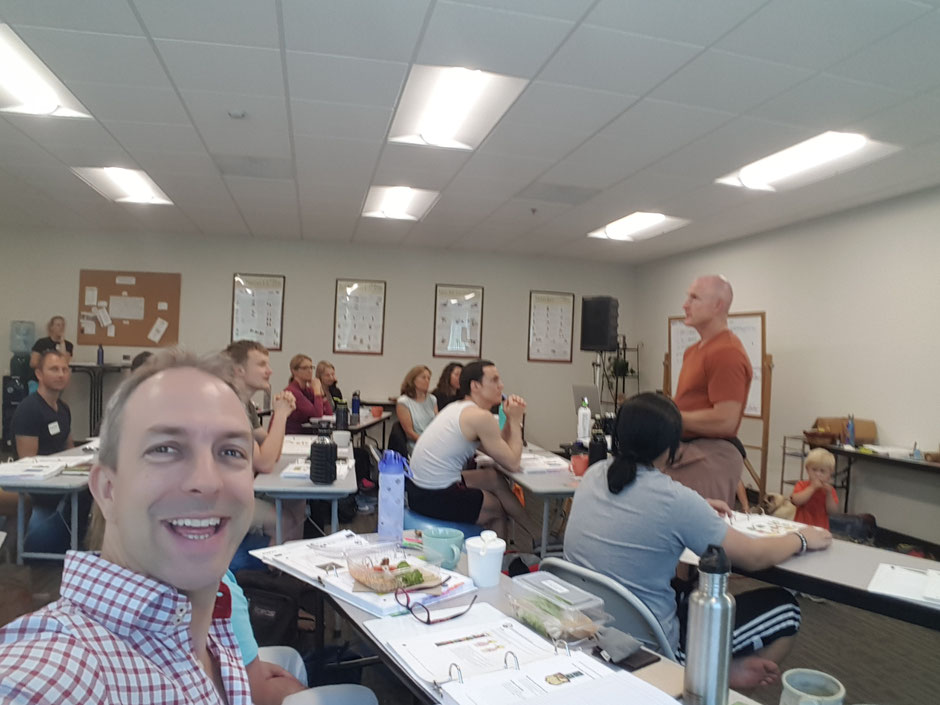Work life balance is not really about balance at all. It’s about prioritisation. It’s about giving yourself permission to put yourself and your family above the demands of your job. And being cool with that. And being comfortable so that you can do a good job, get paid for it and have time for yourself and your family. It’s really about adjusting your mindset away from the dogma that the only way to be successful is to work hard and sacrifice. Theoretically it sounds simple. But how do we get there? Well that’s exactly what we’re going to explore today with these 3 powerful unconventional work life balance tips.

(1) Doing “me” stuff is not selfish
If you are on an aeroplane, they always ask you to put the oxygen mask on yourself before your child? Why? Because if you don’t get yourself sorted first, you’ll never be able to help your child.
Likewise if you are not physically and mentally healthy you will not be able to properly support your family, run your business and look after your employees. You should not feel guilty about going to the gym rather than spending that time working or spending time with your family. You have to take care of yourself first, so you have the physical and mental energy to support those around you who you love and depend on you. There’s always more work that you can do. It will never end. But you will! Your life is finite. So enjoy it. Otherwise what’s the point? Is life about sacrificing your health and happiness for others? You are a human too and everyone deserves the opportunity to be happy and that starts with learning how to take care of yourself and not thinking that you have to sacrifice your own happiness in order to boost the happiness of others.

1. I
2. WE
3. ALL
First take care of yourself (I), so that you have the physical and mental energy to take care of your family (WE), and then your community, work colleagues, friends (ALL).
If you can do that, guilt free, then you’ll find that you, and everyone around you, is happier.
(2) Don’t work when you’re not working!
It’s unproductive and is sabotaging your 'me' time and your happiness.
For example staring at the ceiling at 2am thinking about work is pointless. Nothing really gets solved in the middle of the night that couldn't be solved in a fraction of the time the next day (of course turning you brain off in the middle of the night is another story).
Another example; reading work emails first thing in the morning, getting your anxiety levels up, and then reading them again later and replying to them is duplication and a waste a lot of energy. Get yourself into a position to read them once and reply to them then.
And then thinking about work whilst having your breakfast, hanging out with the kids, trying to chill in the evening is not going to help you make progress at work. It’s just going to ensure that you have a crap breakfast, are a poor parent and will fail to properly unwind at the end of the day.

Learn how to turn your brain off. After all it is your brain. You choose how to move, you choose what exercises to do. Shouldn’t you be able to choose what, how and when to think? These are basically life skills that should be taught at school. They’re not, so we struggle. And that’s why executive coaching is more popular than ever before. Leanring how to be the boss of your brain, and your emotions, is a pretty useful skill it turns out!
As soon as you get control of your mind you will be more productive at work, a better spouse, a better parent AND you will be happier.
(3) Find your Ikigai - your reason for being
Ikigai is a Japanese concept referring to something that gives you a sense of purpose in life, a reason for living, your big hairy audacious goal (BHAG), your one love, your north star, your raison d'être.
Once you’ve got that down pat, you’ll find that your work life balance will take care of itself. You’ll naturally gravitate towards balancing your personal 'me' time, with your family, work and other commitments. When you’ve nailed down your Ikigai your desire to accumulate things over experiences will massively diminish which will reduce the pressure on a singular 'work hard to be successful' mindset.

It took me 3 years to firm up my Ikigai, I did that by reading, taking courses and coaching to get over my difficult personal obstacles and hurdles. At Levitise we can often help people in as little as 6 months with our programmes. We think that’s pretty quick since many people we work with are in their 50s and don’t know their Ikigai. That’s not unusual, that’s the norm. Do you want to be normal? Or do you want to be special?
Once you have found your Ikigai you don’t need to worry about your work/life balance. It will just happen. And you will be happier! Ultimately isn't that what we all want and deserve?
To your health, happiness and longevity,
The Levitise Team
P.S. If you love this blog post then do check out our regular newsletter where you'll get the freshest content on health, nutrition and fitness delivered straight to your inbox. Don't miss out and sign up here.

Write a comment